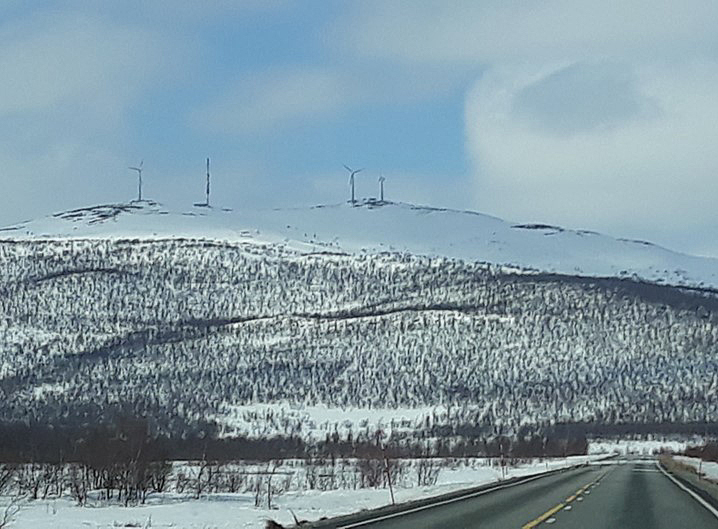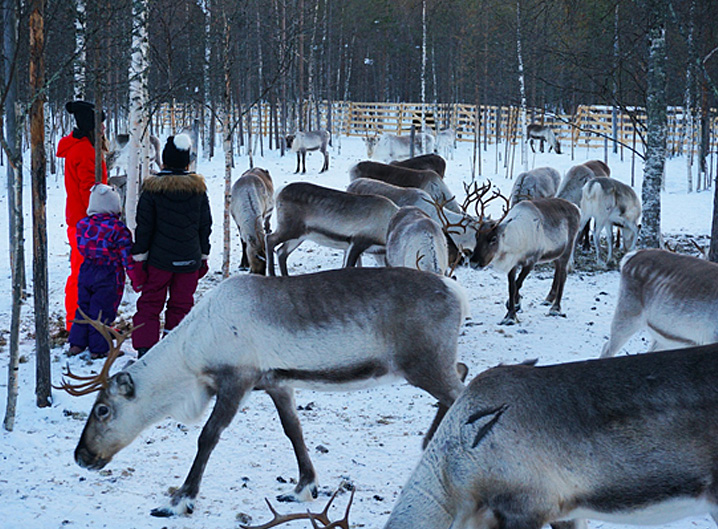What fundamental problems do we have in Lapland with regard to land use, the utilization of natural resources and, on the other hand, the preservation of traditional livelihoods? Tanja Joona introduces JustNorth, a multidisciplinary project funded by the EU's Horizon 2020 program examining the economic development of the Arctic region and the approaches its governance and inclusion from the perspective of justice and ethics.
How do the people of the Arctic experience different economic development projects? Is everything always measured in terms of profitability and ease of implementation? What fundamental problems do we have in Lapland with regard to land use, the utilization of natural resources and, on the other hand, the preservation of traditional livelihoods?
Arctic development of the past is persistent in inequitable practices, leaving scars from the impacts of social, economic and environmental inequality. In addition, Arctic development of today is occurring alongside the adverse effects of climate change within an integrated global system deficient in mechanisms for incentivising just transitions toward sustainable development.
The JustNorth is a multidisciplinary project examining the economic development of the Arctic region and the approaches for its governance and inclusion from the perspective of justice and ethics. The project is funded by the EU's Horizon 2020 program. Tanja Joona, a University researcher and docent at the University of Lapland, leads one of the project's work packages (Justice in Participation and Governance), dealing with issues related to wind power, reindeer husbandry, fishing, mining and infrastructure projects, such as the possible Arctic Railway.

Wind turbines in Lammasoaivi, Northern Lapland. Photo: Tanja Joona
The feasibility of different projects is often assessed in terms of profitability and technical feasibility without considering the project's impact on the immediate environment - and whether the project is perceived as fair, sustainable and ethical. The project aims to be implemented as closely as possible with various stakeholders, such as herdsmen and local communities, and provides both practical recommendations and legal and regulatory recommendations. The research project also produces the JustScore framework, which will create both transparency, documentation and standardisation for sustainable development across the Arctic (and the EU market).
WP4 – Justice in Participation and Governance
The overarching purpose the empirical work package (WP4) is to advance the descriptive and explanatory objectives, as well as to contribute to achieving prescriptive objectives in relation to assessing the viability of economic development in the Arctic. The work package consists of 6 case studies which are introduced below with case study PI (principal investigator) and the aim is to analyse the impact of existing Arctic economic activities across various scales and involving a variety of stakeholders with a focus on Justice in Participation and Governance. This grouping is not intended to exclude these cross-cutting challenges from the scope of the respective empirical WPs. Rather, the aim is to provide a deeper focus and develop a deeper expertise to be shared throughout the project. The research team and project partners will use the guidelines from WP1 to investigate ethics and values behind these economic activities, the negative and positive outcomes thereof, including impacts and feedback within ecosystem services, (especially cultural ecosystem services), and the causal links and gaps between the decisions as perceived by critical stakeholders.
Tanja Joona leads the whole WP4 and Mia Landauer works as the Co-PI. Tanja Joona participates also for the work of WP 6 (Legal and Regulatory Policy Pathways), WP 7 (Communication, Dissemination & Stakeholder Engagement) and WP 8 (Management + Steering Committee)
- CS 13 Transportation Links and Power Disparities: the Arctic Railway Plans in Finland, Faculty of Law, Professor Soili Nystén-Haarala
- CS 14 Mining in the Finnish Arctic, Faculty of Law, Research professor Jukka Similä
- CS 15 The Power and Perish of Multiple Land-Use for Indigenous and Traditional Livelihoods in Northern Finland, Arctic Centre Senior researcher Mia Landauer
- CS 16 Balancing Sustainable Opportunities in the Arctic: Wind Power & Reindeer Herding in Northern Finland, Arctic Centre, Senior researcher Tanja Joona
- CS 17 Industrialisation and Urbanisation with Nature Conservation in the Russian Arctic, University of Uppsala, Vladislava Vladimirova,
- CS 18 Empowering Equitable and Robust Indigenous Economy through Indigenous Entrepreneurship in the Swedish & Russian Arctic, NarFu, Professor Elena Bogdanova

Young girls feeding reindeers at Palojärvi reindeer herding cooperative, Western Lapland. Photo: Joonas Vola
The JustNorth project is coordinated by Uppsala University in Sweden and is led by Assistant Professor Corine Wood-Donnelly. The project consists of a total of 8 work packages and 18 case studies across the Arctic. There are a total of 15 partners, most of them from Europe, but also universities from the United States, Russia and Hong Kong.
The total budget of the project is 6 million euros, of which the University of Lapland's share is just under one million euros. The implementation period is 1.6.2020 - 30.11.2023.
Text: Tanja Joona, PhD, University Researcher
The JustNorth project website can be found at: www.justnorth.eu
